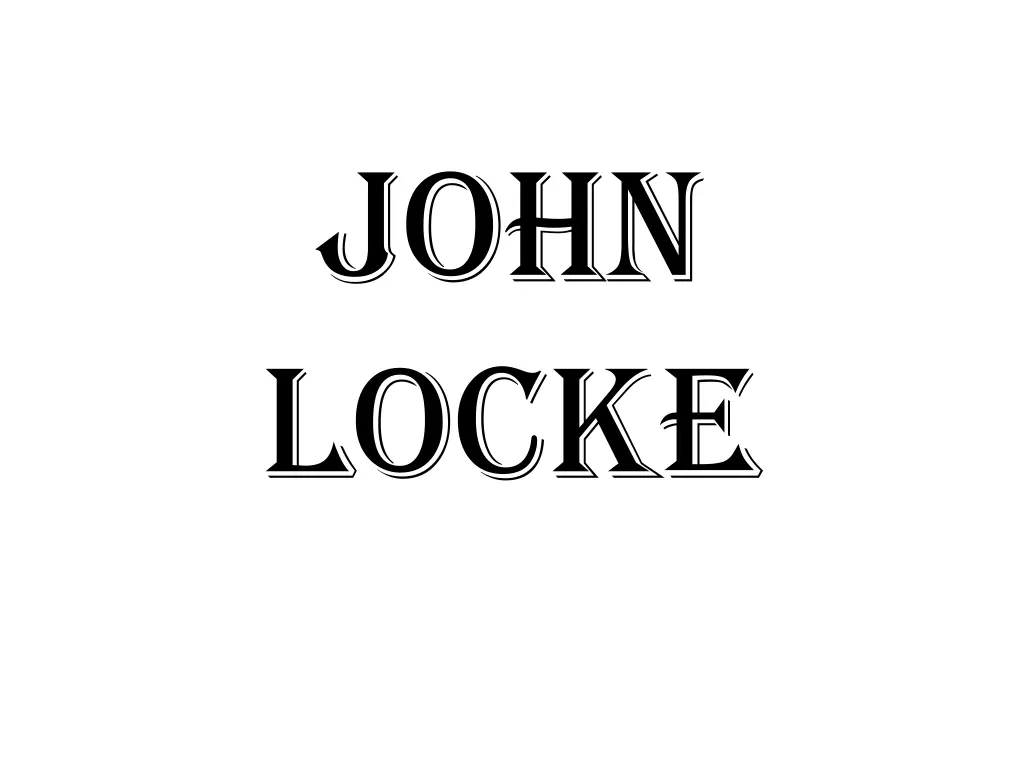
Enlightenment Philosophers and Their Ideas
Explore the key concepts of famous Enlightenment philosophers such as John Locke, Jean-Jacques Rousseau, Montesquieu, and Voltaire. Learn about their beliefs on governance, individual rights, and freedom of expression, and how their ideas shaped modern political thought.
Download Presentation

Please find below an Image/Link to download the presentation.
The content on the website is provided AS IS for your information and personal use only. It may not be sold, licensed, or shared on other websites without obtaining consent from the author. If you encounter any issues during the download, it is possible that the publisher has removed the file from their server.
You are allowed to download the files provided on this website for personal or commercial use, subject to the condition that they are used lawfully. All files are the property of their respective owners.
The content on the website is provided AS IS for your information and personal use only. It may not be sold, licensed, or shared on other websites without obtaining consent from the author.
E N D
Presentation Transcript
John Locke
Jean Jean-Jacques Jacques Rousseau Rousseau
Barron De Barron De Montesquieu Montesquieu
Voltaire Voltaire
Enlightenment Philosophy #1 He believed that human beings originally lived in the state of nature. In this condition, people lived separate from others, just trying to survive in a cruel world. Here people abused each other in order to do, and get, what they wanted. He said that when people allowed themselves to be ruled by a government, that the people and the government had entered an agreement called a social contract. Under the social contract the people give up their right to do anything and had to follow laws. In exchange the government was obligated to protect the people s rights.
Enlightenment Philosophy #2 This French philosopher believed that a government should be divided into separate branches to protect peoples freedom. Each part, or branch, of government would be limited by the others. So what one part of government could do, the others could undo if needed. As a result, the different branches of government must share power. None of them can control the government completely.
Enlightenment Philosophy #3 This thinker said that all people are born with certain rights that cannot justly be taken away by government. This rights include life, liberty, and the right to own property. He supported the idea that governments were created by the people in order to protect their rights. If a government fails to do this, they government should be overthrown or modified.
Enlightenment Philosophy #4 This thinker believed in freedom speech, expression, and petition. He supported the idea that people should be allow to criticize the government without fear of being arrested or executed.
Famous Quote #1 ALL MANKIND... BEING ALL EQUAL AND INDEPENDENT, NO ONE OUGHT TO HARM ANOTHER IN HIS LIFE, HEALTH, LIBERTY OR POSSESSIONS.
Famous Quote #2 THERE IS NO CRUELER TYRANNY THAN THAT WHICH IS PERPETUATED UNDER THE SHIELD OF LAW AND IN THE NAME OF JUSTICE.
Famous Quote #3 I DO NOT AGREE WITH WHAT YOU HAVE TO SAY, BUT I'LL DEFEND TO THE DEATH YOUR RIGHT TO SAY IT.
Famous Quote #4 WHAT, THEN, IS THE GOVERNMENT? AN INTERMEDIARY BODY ESTABLISHED BETWEEN THE SUBJECTS AND THE SOVEREIGN FOR THEIR MUTUAL COMMUNICATION, A BODY CHARGED WITH THE EXECUTION OF THE LAWS AND THE MAINTENANCE OF FREEDOM, BOTH CIVIL AND POLITICAL.
